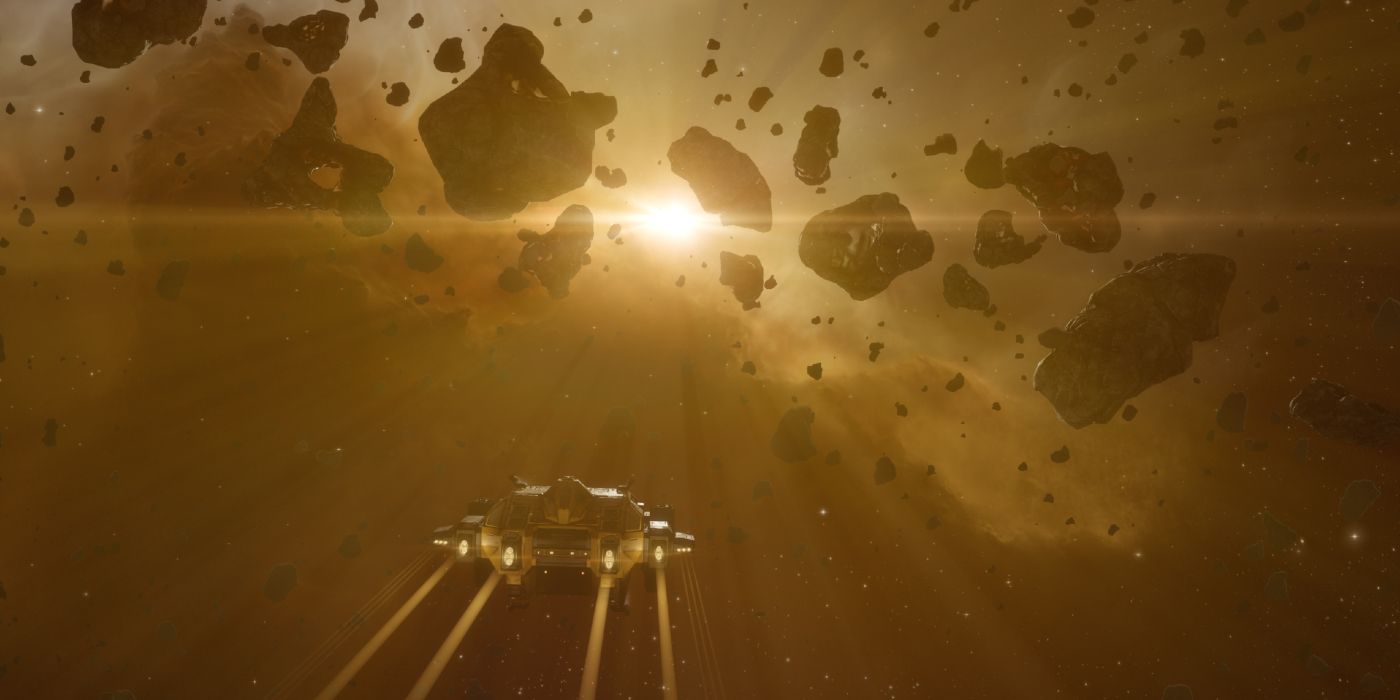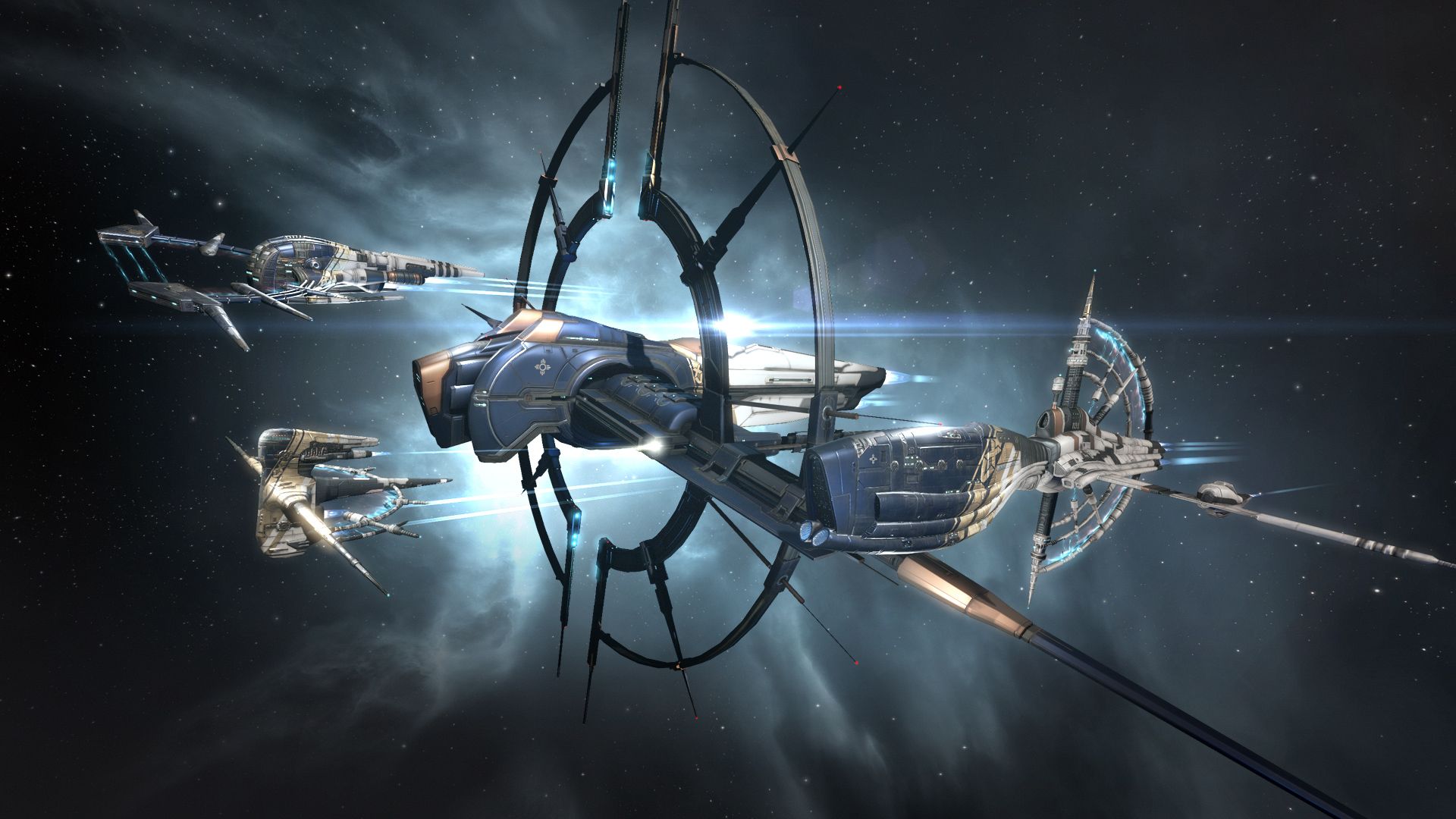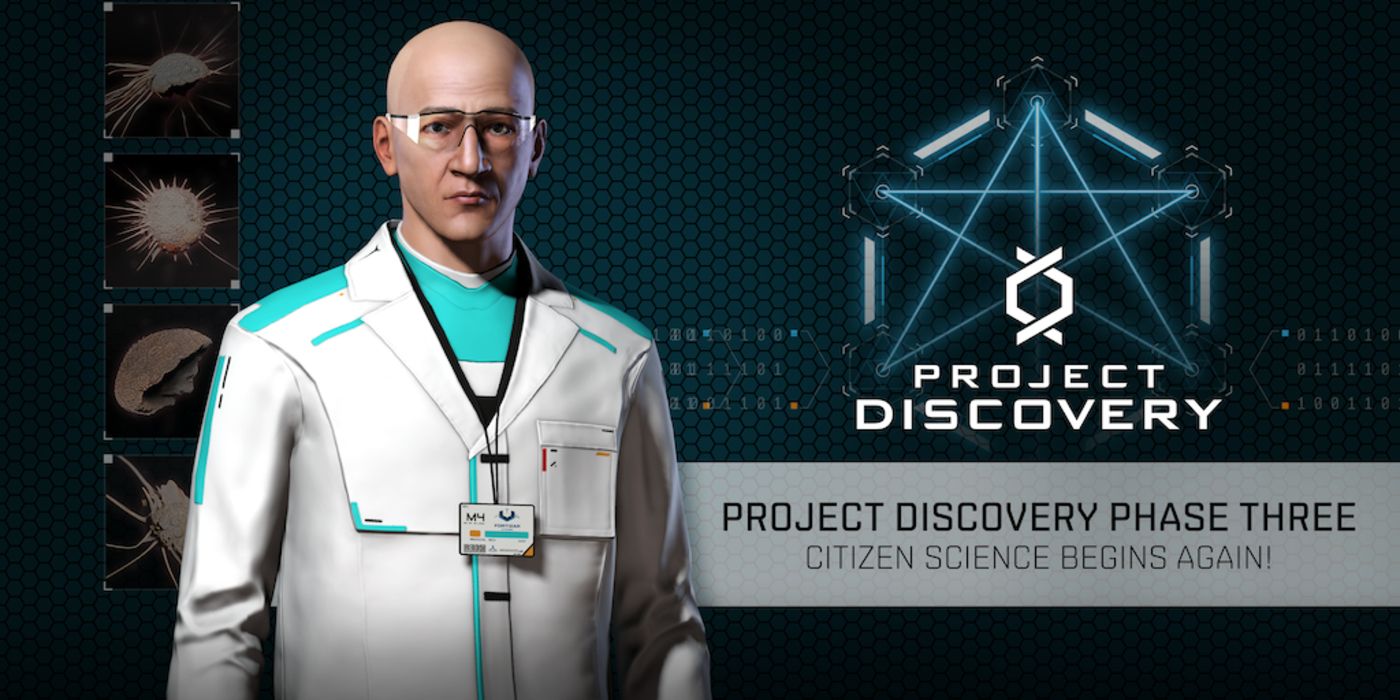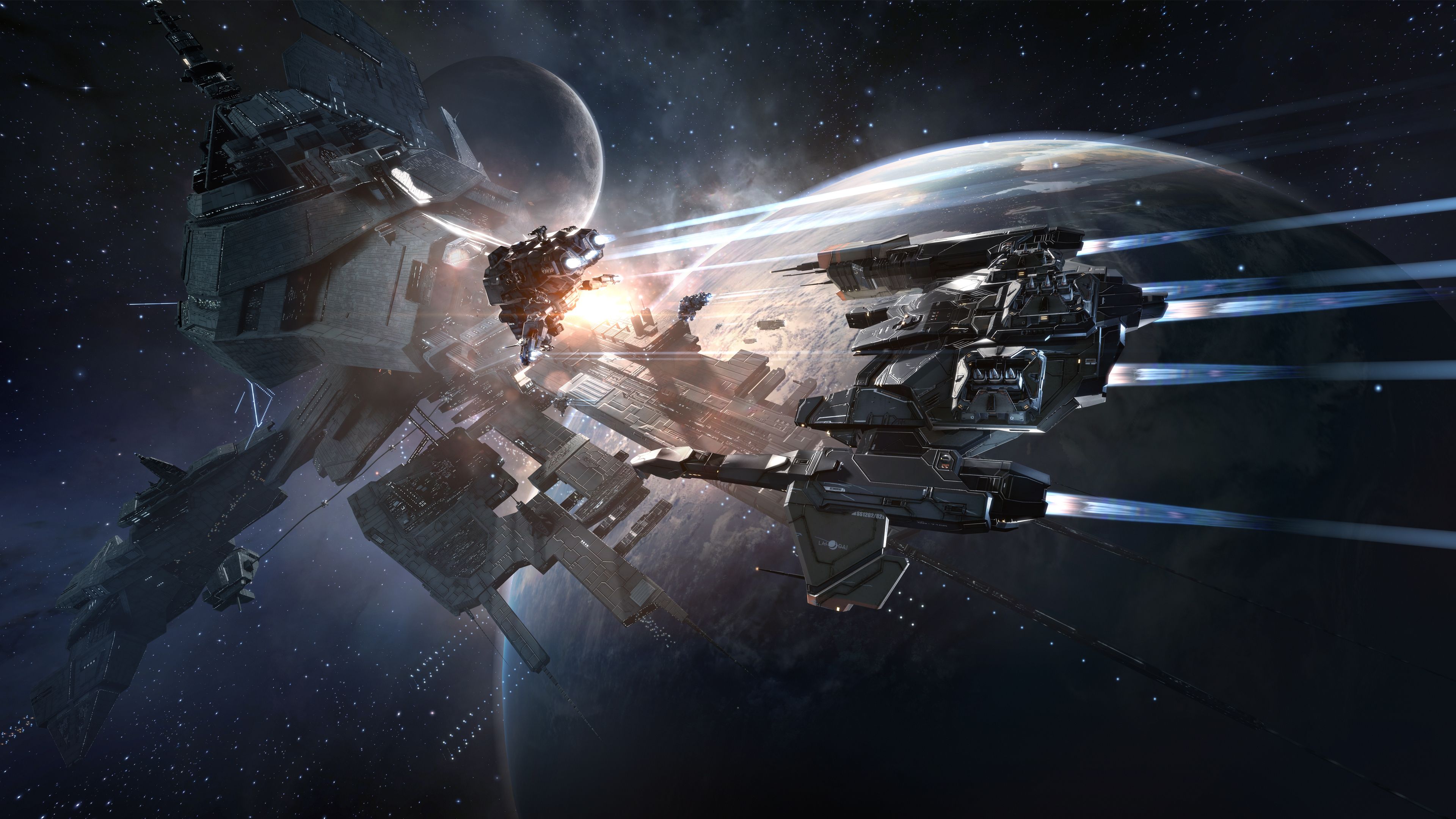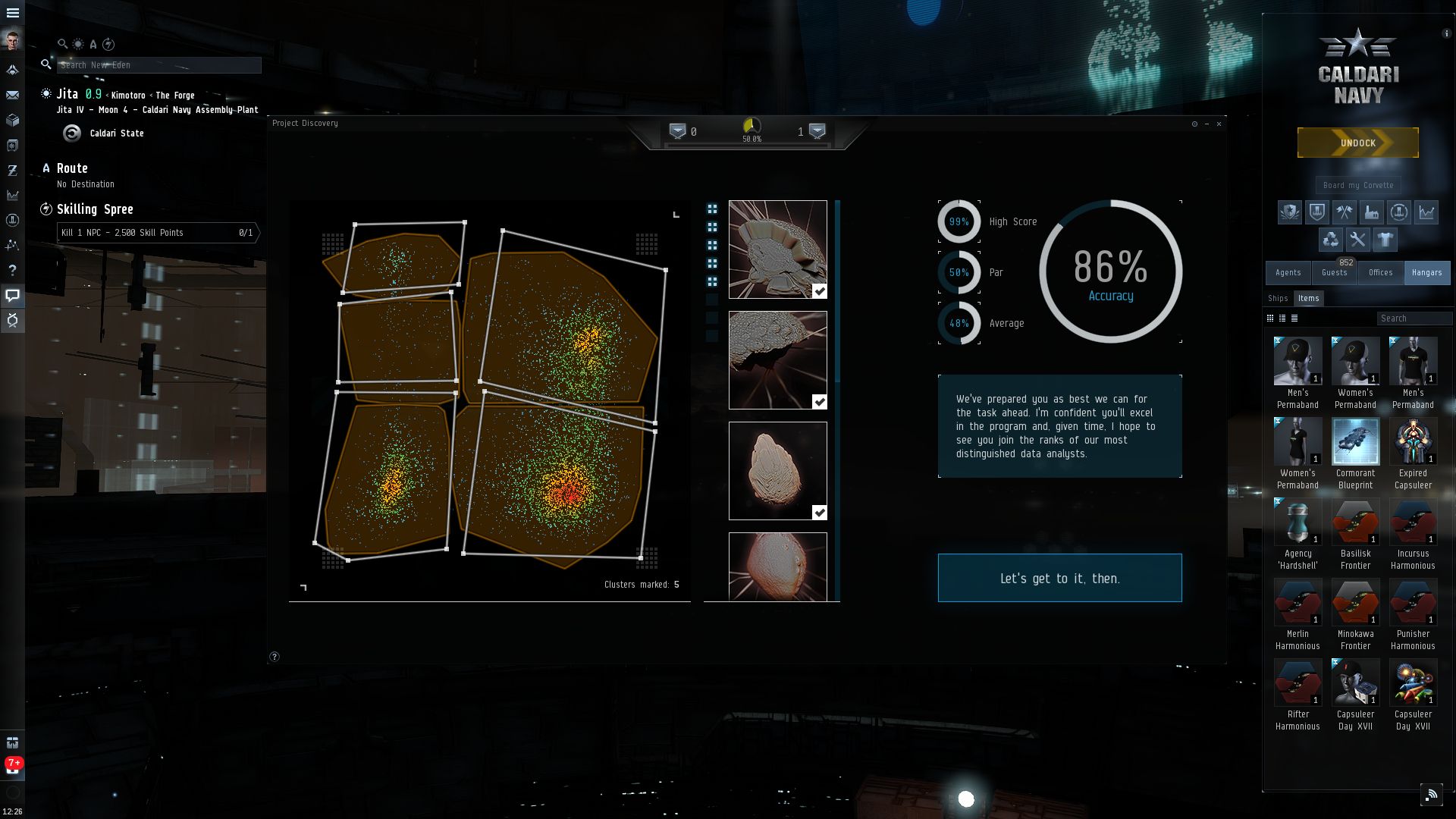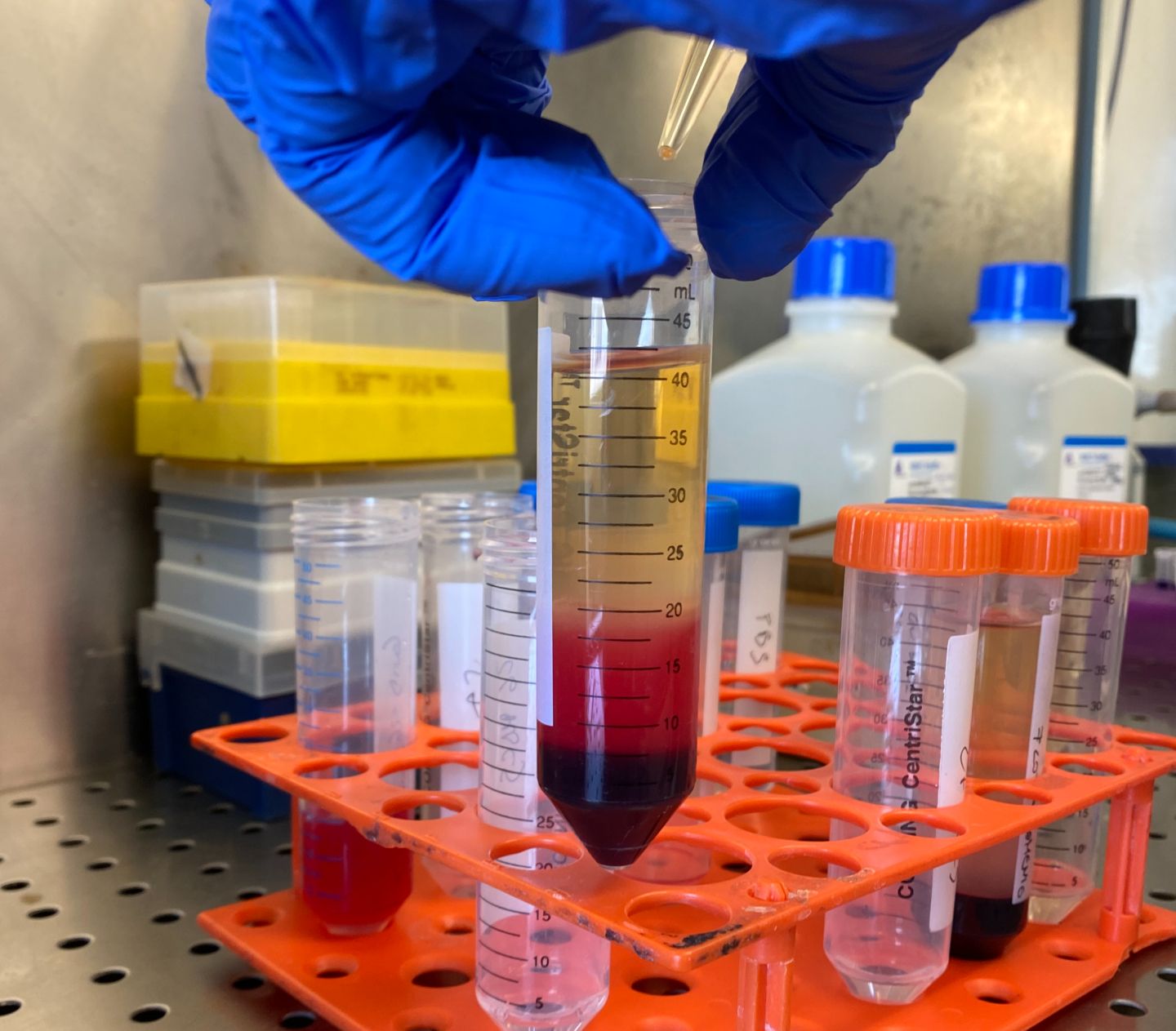Especially for games with the scope of an MMO like EVE Online, developers can only have so much say in how the in-universe systems are constructed before letting communities do with them what they'd like. In the case of CCP Games' spacefaring sandbox title, that freedom has left players dividing up the star systems in New Eden of their own accord. Often this is a bloody affair with far-reaching history, as multiple coalitions of players are currently embroiled in a war with roots going back to at least 2016.
But of course, this is just a video game, so that animosity and drive on behalf of players is more indicative of how attached people are to the game. The developer has elected to use that passion for positive aims, partnering with the European Union-funded group Massively Multiplayer Online Science (MMOS) to take on a number of projects meant to advance humanitarian aims. Game Rant spoke with CCP Games and individuals attached to its Project Discovery initiative about how EVE Online players are currently helping coronavirus research efforts. Interview has been edited for clarity and brevity.
Q: MMOS has active projects with companies like Gearbox. What was the impetus for using video games to crowdsource scientific research?
Attila Szantner, MMOS CEO: I have always been intrigued by citizen science. It is a beautiful concept that outsiders can help advance scientific research by contributing to these projects. On the other hand, I knew about its shortcomings as well - the disappointing engagement metrics and the hardships of acquiring new users.
The idea to resolve this situation was simple - to transform these citizen science tasks into mini-games for AAA video games in a way that they become an integral part of the game and narrative. So, we founded MMOS to make it happen. It's one of those innovations where you wonder why nobody has ever done it before. Of course, when you start to work on it, that is another story! That is when you realize all the obstacles that must be overcome.
Fortunately, with EVE Online and CCP we found a perfect partner who was very committed and supportive right from the beginning. We shipped Project Discovery together in record time.
Now, after working on it for five years, I see this project to be part of a fundamentally important effort. As we spend more time in video games, it is imperative for us as a society to find new ways to extract as much value from this time as possible. EVE’s Project Discovery is one way of doing that, and will hopefully inspire others to set up collaborations with the industry.
Q: How are these projects chosen? What led to the desire to tackle COVID-19?
Szantner: There are certain criteria that a research project must fulfill to become a viable candidate. First, it must be a good match to the game, and it must have a large number of tasks to solve. I find it especially important to find an engaged research team that is willing to be part of the project and open to interact with players.
I think one of the key elements of MMOS being successful in setting up large-scale projects with different major game developers is that we did not have a fixed scientific agenda, but rather wanted to find the best matching projects. This is always an iterative process with game designers and researchers. Furthermore, the careful matching of games and citizen science is key, as game designers cannot risk breaking immersion.
COVID-19 is one of the most pressing issues today. In being able to help researchers when time is of the essence, Project Discovery stepped to the next level. We have proven that video games and player communities can contribute to research in emergency situations.
David Ecker, EVE Online Lead Producer: With the foundation we set in two previous iterations of Project Discovery alongside MMOS, these projects are a collaborative effort led by opportunity spotting for citizen science. When Attila approached us on a COVID-19 version, the wheels in our head immediately started spinning and we knew we had to find a way to make it work. The extremely relevant nature of the pandemic, plus the timely nature of being able to get something into our players hands to make a difference, were some of the largest driving factors; we were all at home being affected by this. It was extremely easy for us to rally a team with passion and desire to create this project and make it the best it can be.
Bergur Finnbogason, EVE Online Creative Director: When we set out to do our first Project Discovery project with The Human Protein Atlas, we set ourselves some ground rules for the data we would allow: [1] Real-world purpose with altruistic nature, [which] means less finding bomb targets, and more helping human progress through scientific research. [2] Aesthetically fitting and thematically adoptable
Our contract with players is not to break immersion once they enter the game. Once you get into your EVE session, you are no longer Jane from Baden-Baden, Germany, you are Space Pirate Exis on a mission to take down a 180 km high citadel in deep space. On the data front, this means we don’t want zebras or giraffes, more things that can be folded into the canon of the universe. [3] Task must take consistent length of time to solve
To make sure players return to the Project Discovery, we need to make sure they know the time investment ahead of what you are about to do, whether it’s a two-minute or 20-minute thing. If each task greatly varies in time, players are less likely to engage. [4] The research requires a high volume of tasks
Players are tireless. We thought that the first version of Project Discovery would take three months to solve, but it ended up taking them three weeks! [5] The problem that the players are dealing with needs to be difficult
This was the last rule to be added, and came about after The Human Protein Atlas. That project was quite complex and we built a brand around Project Discovery that it was complex and not for everybody, so there is a sense of pride around being good at it. We don’t want to undermine the effort by making it too easy to master.
With this in mind and the urgency of this COVID-19 situation, we reached out to see if there was something we could do to help. Like magic, Attila managed to dig up the amazing research that Andrea, Jerome and Ryan have been spearheading. CCP Games, and the EVE community, are incredibly proud of contributing to a better, healthier world.
Q: For those who aren't scientifically-minded, what research is being done in EVE Online? I understand it has something to do with analyzing cellular cluster data.
Jerome Waldispuhl, DNA Puzzles Project Lead: The game aims to solve a fundamental problem in computer science and artificial intelligence called the clustering problem. Given a population of data points distributed in space, we want to identify groups of points that appear to stand out from the others - sometimes because they are all close to each other and create regions with high-density of data points, or sometimes because their distribution follows a pattern. The problem is that the identification of such cluster can be subjective and results from the agreement of several users.
There is no universally accepted mathematical function that tells us with 100 percent confidence if a cluster exists or not. To remedy to this issue, the objective of this project is to collect cluster annotations from participants and compute a consensus from their answers to determine where are these clusters. In principle, this problem is relevant to many areas of data science, but it turns out to be particularly well suited to the analysis of data generated in flow cytometry studies. Flow cytometry aims to study the behavior of the immune system. To do that, we need to identify sub-population of similar cells in the data generated by flow cytometer.
Ryan Brinkman, University of British Columbia Medical Genetics Professor: The first goal is to identify cell populations of interest that associated with COVID infection. The immune system is comprised of different cell types that each play roles in fighting infection, such as recognizing there is something floating around in your body, mobilizing other cells to attack that infection, or preparing to fight back if you should ever see that virus again. We can label these different cell types using flow cytometry.
The scientist’s job is to look at data plots to see what cells are present and then draw “gates” around these groups so they can be counted. It’s the proportion of how these different cell types change that is of interest to understand what the virus is doing to the immune system and how the body tries to fight back. We do this by comparing how many cells of each type are present in healthy versus sick people - but first we need to find these cell populations. This is tedious and very time consuming for a single sample, which is why breaking down the problem into small chunks that can be solved in parallel by lots of people is a unique innovation for this effort.
Andrea Cossarizza, University of Modena and Reggio Emilia's School of Medicine Vice Dean: All gamers are identifying true cell populations that are affected by the infection, because the data files arrive from patients with pneumonia caused by SARS-CoV-2. By doing this, players not only acquire some basic notions of immunology, but also help develop algorithms that can be used in real laboratories. Very soon, these algorithms will allow an extremely accurate and rapid analysis of hundreds of biological samples taken from COVID-19 patients.
Q: How does this research translate into EVE Online?
Ecker: One pillar of Project Discovery since day one is that it needs to make sense in the EVE universe. This means we need to tie it in narratively and thematically into the in-game world of New Eden, but in a way our players find interesting. When it comes to an EVE Online player, our community shares similar outside interests such as sci-fi, science, and technology.
Within the game, Project Discovery is a special minigame for players to interact with. The latest version has a novel coronavirus affecting the world of New Eden, and one of our in-game universities has a professor leading studies that need our Capsuleer players to lend a hand. With a full narrative tie-in, it makes sense in our world, and the gameplay surrounding it is something that fits the game.
Our players are provided the sample data in the form of a density scatter plot, in which they can use a drawing tool mark off areas of high density and patterns. This is the big step we allow the scientists to skip, as our community of thousands is completing this so we can hand over processed data for further analysis. Essentially, we use the power and size of our playerbase to help the scientists skip a heavy up-front cost in data analysis.
Q: Beyond the obvious value of helping research, are there in-game rewards for those who help the research effort?
Ecker: With Project Discovery we have a full layer of gamification where players earn XP, level up, and are awarded valuable, exclusive rewards for their contributions. EVE is a game that’s built on min/maxing your time, and we want players to be rewarded for spending their time in the project just as they would with any other part of the game.
However, this is only one of the layers of motivation. One of the beautiful things about Project Discovery is that it provides that real- world motivation in which everyone needs to chip in and do their part to achieve a goal. Every player that participates is a small, yet critical member of the community that is marching towards the same goal for the greater good.
I truly believe that even without us adding an additional layer gamifying the project, we would still have our community showing up and participating in the name of science and progress. That’s the power of purpose, achievable change, and goal setting.
Q: The initial message Game Rant was sent mentioned that over 41 million data classifications have been submitted, contributing to nearly 150 years of research. How was this number derived?
Waldispuhl: We received 41 million annotations of the flow cytometry images, which is in fact more than 41 million datapoints because annotations consist of multiple polygons. The 150-year estimation is the time spent collectively by participants when we convert it in full-time equivalent (FTE). I believe we use a conversion of 40 hours per week, and 48-to-50 weeks per year. It is not “research” time, but rather “working” time. It is hard to compare how much a scientist will spend compared to a citizen scientist, but my intuition is that it would be roughly the same.
Q: Is there a certain threshold that the research is aiming to meet? What does that time spent translate to in terms of an impact on research, say, to find a cure?
Cossarizza: It is very easy to predict that in the coming months and years there will be many vaccines on the market, and the economic interests will be gigantic. It will therefore be very important to characterize the immune response of vaccinated people accurately in order to quickly and accurately assess the effectiveness of different vaccines. For this purpose, the main technology is flow cytometry, which allows us to characterize and study the functions of millions of cells in a few seconds. All the time that players have devoted to Project Discovery actually goes to fighting this pandemic.
Waldispuhl: From my perspective, the sky is the limit. The data we are receiving are helping us to: First, annotate data from current studies; but also second to train machine-learning models to build automated programs. The more data we get, the more precise the annotations and models. What we already collected is beyond our expectation, EVE Online players are just fantastic. But now, I have the feeling we can do even better!
Brinkman: We are focused on aiding COVID researchers and clinicians by providing a more in-depth analysis than they could ever do on their own. We know from other studies we have done that doing such in-depth analysis can identify potential biomarkers that are associated with disease in ways that the traditional, targeted analysis done by scientists simply cannot. Long-term, we hope that this effort will lead to the development of the next generation of algorithms for the analysis of flow cytometry data in general.
The technology is widely used to understand how our immune system is responding to all kinds of infections and how our body builds immunity to them, which applies for cancer research, stem cell research, normal and abnormal cell death, and more. While many algorithms have been developed for automation of flow cytometry analysis, due to performance reasons they are restricted to applications of discovery and not clinical use, for example to make diagnosis.
Not only are the results of players’ analyses going to be important in terms of new discoveries, but the millions of results will provide training data for the next generation of machine-learning algorithms that require such an extensive corpus of examples to learn general patterns. For various reasons, the training data required for these programs does not exist in a way that is available to researchers. This project will change that. That way, these algorithms can be applied to all the different flow cytometry datasets for which this technology is applied, well beyond COVID-19. We will be releasing all the data back to the wider research community so this can happen.
[END]
EVE Online is available now on PC.

